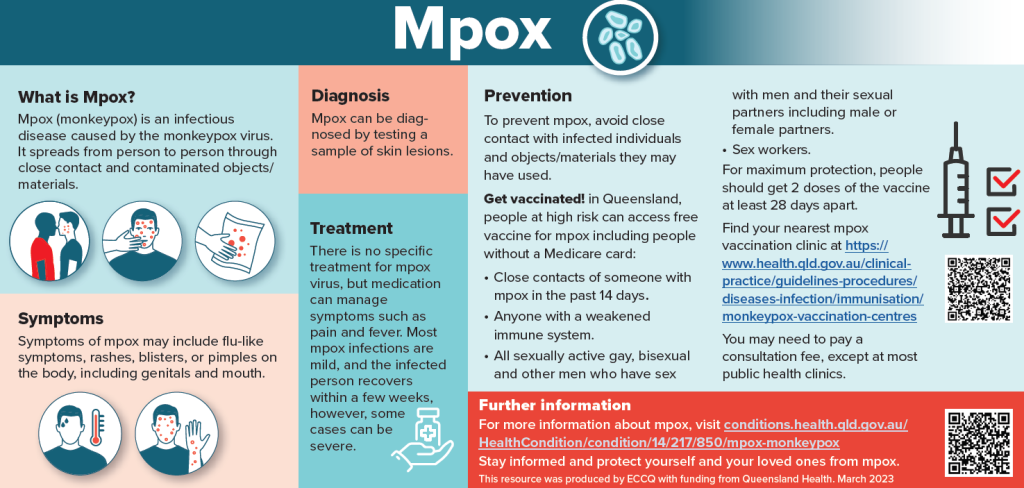On the 13th June 2024, Queensland Health reported that since April 2024 there have been cases of locally transmitted Mpox. This viral disease is still a problem overseas, therefore if you are planning to travel internationally, please talk to your doctor about vaccination if you think you may be at risk.
For high-risk groups:
- Free vaccines are available through sexual health clinics and some general practices.
- The vaccine requires two doses at least four weeks between doses, so it is best to plan ahead.
Infection can occur after close or intimate contact with an infected person, or contact with contaminated objects such as clothing, towels and bedding.
If you have recently travelled overseas and are concerned that you may have been in close contact with an infected person, or had close contact in Australia, please talk to your GP. Also, it important to not have close or intimate contact with another person until you have received results, it is best to stay at home and cover any lesions with dressings or clothing.
Symptoms of Mpox develop between five and 21 days after exposure to the virus and include a rash or skin lesions (pimples, blisters or sores) appearing on the body and other flu-like symptoms (headache, swollen lymph nodes, fever, tiredness etc).
There are no specific treatments for Mpox, generally treatment is to help reduce symptoms.
If you would like more information about Mpox please see Mpox – ECCQ for information in different languages.



